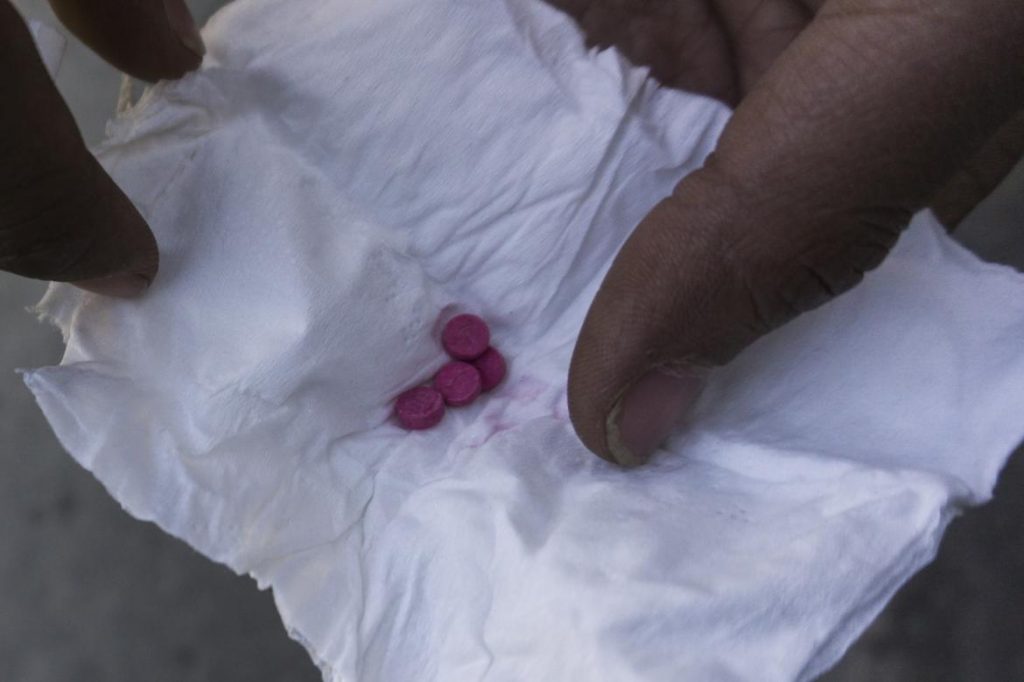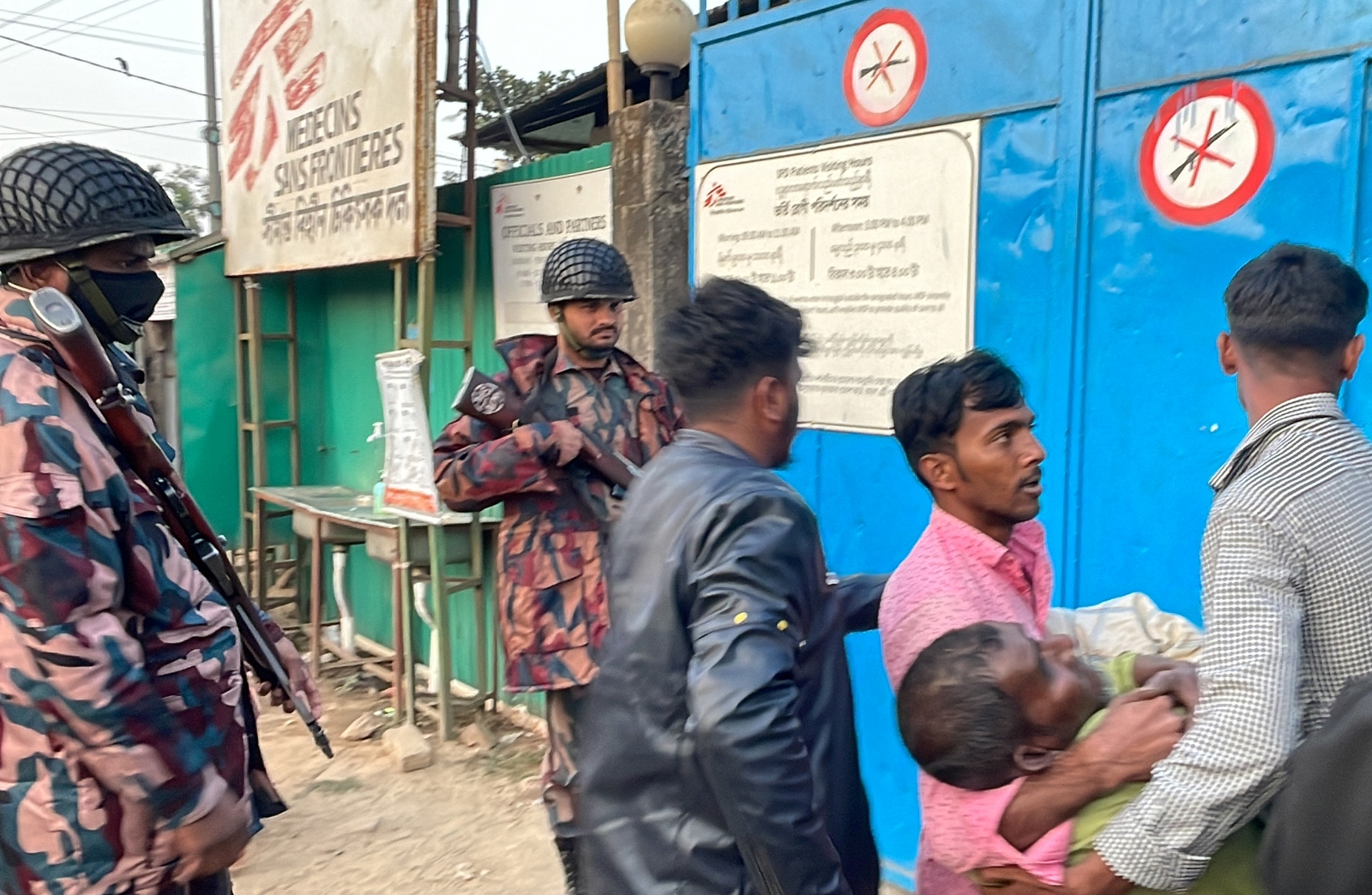By AFP
DHAKA — Growing numbers of outcast Rohingya refugees are risking their lives by crossing the closed Myanmar-Bangladesh border with narcotics pills packed into their stomachs, police said Tuesday.
Scores of Rohingya Muslims, including many women, who fled to camps in Bangladesh after a Myanmar military clampdown in 2017, have been detained in recent months after returning to seek drugs and transport them, according to police.
Narcotics control official Mr Soman Mondol said an anti-drug squad had arrested 18 Rohingya near the border town of Teknaf on one day this month and 13 had “yaba” methamphetamine pills in their stomach.
Myanmar has become a major producer of yaba, a Thai word meaning “crazy medicine”, which has become wildly popular in Bangladesh, as well as other southeast Asian nations.
Support more independent journalism like this. Sign up to be a Frontier member.
Refugees earn up to 20,000 taka (US$237) for each narcotics trip, Mondol said, adding “for a Rohingya, it’s a lot of money.”
The drug is carried in the stomach where it is difficult to detect without x-ray machines that are rare at border posts, he said.
Drug gangs use Rohingya to get the yaba into southern Bangladesh, where almost a million impoverished refugees live in camps, and then send it all over the country of 165 million people, anti-narcotics officials said.
Mondol said each carrier swallows a plastic bag of between 500 and 2,000 yaba pills before transporting it across the border.
“We are overwhelmed. It’s an alarming trend,” Mr Faisal Hasan Khan, Bangladesh Border Guard chief in the border town of Teknaf, told AFP.
He said about 70 Rohingya had been detained in recent months with hundreds of thousands of pills.
Mr Azim Ahmed, head of the police Rapid Action Battalion (RAB) in Teknaf, said the flow of yaba has increased despite a crackdown in the past year in which 400 suspected drug traffickers, including 20 Rohingya, have been shot dead.
“Rohingya involvement has phenomenally increased in this trade,” he said. According to Ahmed, only 10 percent of the traffickers are being caught.
Mr Emdadul Haq, a professor at the private North South University, said gangs take advantage of the poverty of the refugees who are not allowed to work outside their camps or pursue higher education.
As part of the crackdown, the Bangladesh parliament made yaba a class-A banned substance in October and parliament passed a law allowing the death penalty for traffickers in the drug.







